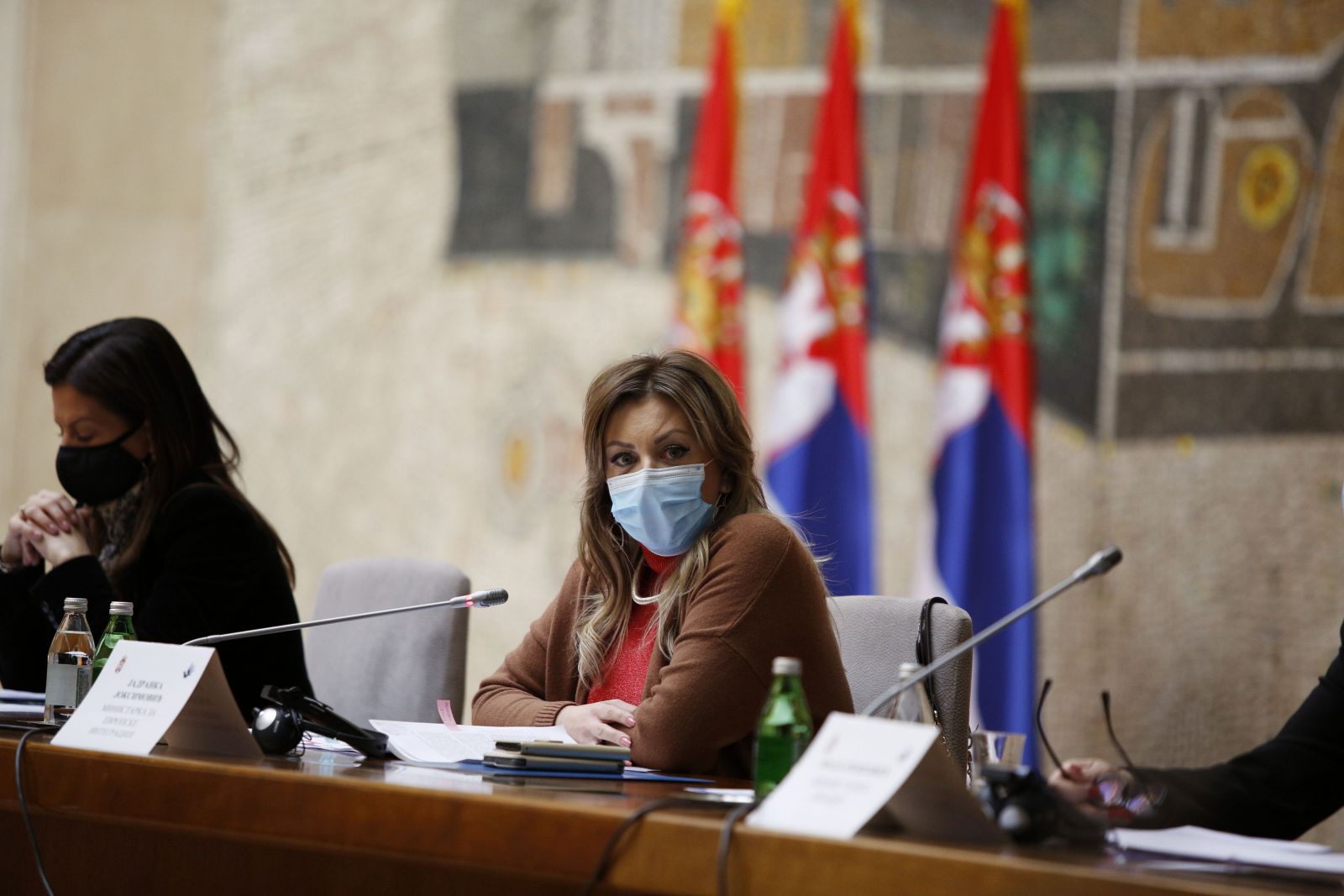
Minister of European Integration Jadranka Joksimović has assessed today that gender equality cannot be addressed half-heartedly and superficially, but that fundamental topics should be addressed, including gender equality at work and gender identity.
Joksimović has participated at the first multisectoral social dialogue on gender equality in Serbia, where she has stressed that social dialogue on this topic has long been opened, and that all governments since 2014 have dealt with this issue in a serious way, developing and preparing strategies, plans and various documents in that field.
“Social dialogue has long been opened, we can only adjust it in the institutional and inter-institutional framework, which requires efficient work of all institutions”, said Joksimović.
She has emphasised the importance of addressing the topic of violence and harassment at work, adding that, following the global #MeToo wave, the Convention on Violence and Harassment in the World of Work, which was proposed and adopted in the International Labour Organisation, was only fully ratified by three countries, while several other countries, including two or three EU member states, strive to be the “impulse” of ratification.
“Attack on gender equality starts every day at various workplaces in Serbia, every morning the big boss and director addresses his female employee at their place of work with “miss madam”, just like in that domestic TV series. These are the topics we should discuss”, emphasised Joksimović.
She has added that it is also important to launch the topic of gender identity and the question of what gender really is.
“Although I belong to the moderate centre-right by political orientation, as does the party I am a member of, and I have quite conservative views regarding certain issues, there is no reason or right to avoid topics that represent reality in the world and in Europe – the issue of gender and gender identity, which, when we launch social dialogue on it and define it within a relevant law, will result in us recognising the existence of so-called intersex and transgender categories, i.e. those who do not want or cannot identify as either male or female”, said Joksimović.
She has expressed her disagreement with the fact that today’s meeting was marked as “multisectoral” instead of “intersectroral”, stating that only as such can it make sense. She has also objected to the fact that representatives of the Ministry of Interior, Ministry of Defence and Ministry of Foreign Affairs have not been invited to speak within the dialogue, saying that those are the sectors where one of the most important issues of gender equality is women’s contribution to global security, peace and diplomacy.
Source: Tanjug







